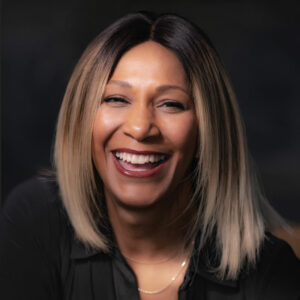Wisconsin Community Services Embraces DEI as a Leadership Competency

“The biggest difference has been intentionally pulling other leaders into this work. This wasn’t and isn’t a top-down effort. While I was instrumental in launching the initiative, I didn’t take on the role of being primary driver.”
Clarence Johnson, President and Chief Executive Officer, Wisconsin Community Services
Wisconsin Community Services (WCS) serves thousands of people each year who have behavioral health needs and/or involved with the justice system. The organization is guided by its core values of justice, respect, integrity and the pursuit of excellence as it provides person-centered services and programs. To build on these values and bring them to life, CEO Clarence Johnson, believed the agency could be more intentional with its efforts around diversity, equity and inclusion.
“The work Ridley Consulting Group (RCG) was doing with another organization encouraged me to think more broadly about how we could be much further along both in terms of our DEI practices and the extent to which we involve staff,” says Clarence. “We needed a structure, a strategy and a process to really advance it in the organization.”
They accomplished all of these goals, gaining real traction with embedding DEI best practices throughout the organization. What WCS did uniquely well that contributed to their success was approaching DEI as a leadership development opportunity for all employees.
Here’s what they did:
Broadened ownership – Clarence intentionally brought many leaders into the process early on to broaden ownership and accountability for driving a major organizational priority forward. “This wasn’t and isn’t a top-down effort,” notes Clarence (see text above). While I was instrumental in launching the initiative, I didn’t take on the role of being primary driver. It was very clear that I would be just one of many staff involved in advancing this practice within the WCS culture. There are other people in the organization driving our DEI journey, and that’s very positive.”
Formed a DEI council – Council members were recruited from all departments and levels across the organization. Being part of the council offered staff members the opportunity to engage in strategy development, work planning and prioritization, metrics analysis, meeting facilitation – undertakings new to them that helped to build and stretch new leadership skills.
Support team skill building – WCS’ DEI strategy identified strengthening all employees’ capacity to talk about DEI topics and bridge differences through dialogue as a key outcome. WCS views these skills as critical to strengthening its culture and improving relationships and outcomes with the individuals and families they serve. To make progress, all teams hold monthly discussions on a variety of DEI topics. “All of our staff are involved at some level and that’s exciting,” notes Clarence. “In the initial stages there was some reluctance to have conversations around DEI. That’s changed. Our people are open to saying ‘Listen, I don’t know all that I need to know, I want to know more and learn more.’ They feel comfortable asking those questions and learning from each other.”
Emphasizing leadership development as part of the DEI strategic planning process as well as an outcome of the DEI strategic plan helped WCS ensure that DEI isn’t solely a human resources responsibility. Instead, all employees have the opportunity to develop and demonstrate DEI best practices to simultaneously grow professional skills individually and positively contribute to the organization’s collective impact.
Let's Connect
Beth Ridley is a former corporate executive turned organizational transformation consultant, speaker and author. Beth combines 25 years of global leadership and management consulting experience with expertise in diversity and inclusion and positive psychology to partner with leaders to transform workplace cultures to better achieve their vision and goals. Beth’s work is featured in national publications and she frequently delivers keynotes and workshops at events around the world. Beth lives with her husband and three children in Milwaukee, Wisconsin.

